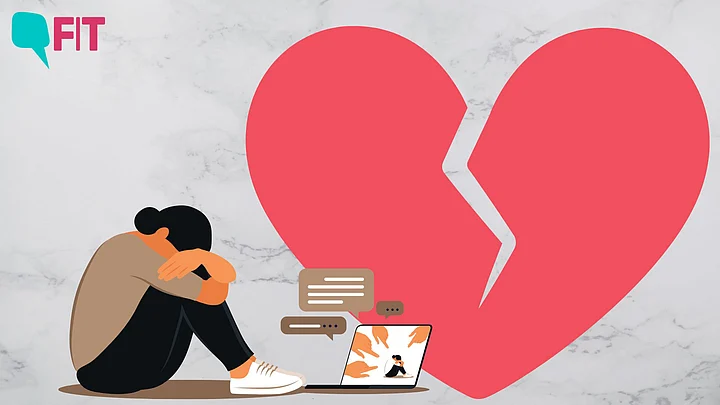Did you know that recent studies have linked loneliness with heart diseases?
Research shows that prolonged periods of social isolation and lack of meaningful connections don't just cause emotional distress but can lead to chronic stress, unhealthy behaviors, and physiological changes that negatively affect the cardiovascular system.
But is there something you could do that would help prevent this?
FIT spoke to experts to understand how fostering social connections could help combat loneliness.
First of all, there is a subtle difference between loneliness and isolation. While social isolation quantifies the absence of connections, loneliness is more about the quality of relationships rather than sheer quantity.
"Understanding this distinction is essential for addressing the unique challenges associated with each and developing appropriate interventions to promote social well being," Dr Nihar Mehta tells FIT.
What Isolation Does To You
34-year-old Yash had been experiencing shortness of breath and heavy palpitations for a few months when he discovered that he was suffering from tachycardia arrhythmia.
"I found myself becoming increasingly isolated, disconnected from the world around me, and I felt a deep void within. Little did I know that this void was affecting not only my emotional state but also my physical well-being."Yash (name changed), 34
Stress, anxiety, and depression can disrupt the electrical signals in the heart, leading to irregular heartbeats and potential complications.
"Isolation, particularly chronic social isolation, can have negative effects on both physical and mental health, including an increased risk of heart disease," says Dr Varun Bansal, Senior Consultant, Cardiology and Cardio Thoracic Surgery, Apollo Hospital.
According to a study published by National Center for Biotechnology Information, chronic social isolation has also been shown to increase the risks of morbidity and mortality.
Several symptoms of isolation could lead to this increased risk, doctors say.
Psychological Stress: Isolation can lead to chronic psychological stress, which triggers the release of cortisol and adrenaline hormones that can increase blood pressure, inflammation, and atherosclerosis.
Lifestyle Factors: Isolated individuals may engage in unhealthy behaviors such as poor dietary choices, a sedentary lifestyle, unregulated sleep schedule, smoking, excessive alcohol consumption, or drug abuse.
Limited Support System: Social isolation often means having limited access to emotional support, encouragement, and assistance from others which can increase feelings of depression, anxiety, and stress.
Health Monitoring and Care: Isolated individuals may be less likely to receive regular health check-ups and medical care resulting in delayed diagnosis and treatment.
Health Risks & Loneliness
According to Dr Bansal, loneliness has been linked to
Higher blood pressure
Increased inflammation
Greater risk of cardiovascular problems
Weakened immune system
When 44-year-old Surbhi (name changed) was diagnosed with hypertensive heart disease, her doctor explained that the chronic feelings of loneliness and social isolation she experienced had been a contributing factor.
This diagnosis was a reminder for her that emotional well-being is just as crucial as physical well-being.
"Loneliness is strongly associated with mental health issues, including depression, anxiety, and an elevated risk of thoughts about suicide. It can also contribute to cognitive decline and an increased vulnerability to conditions like Alzheimer's disease."Dr Varun Bansal, Senior Consultant, Cardiology and Cardio Thoracic Surgery, Apollo Hospital.
However, loneliness and isolation can be tackled with some patience, love, and support.
Managing Isolation & Loneliness
According to Swati Savla, Lifestyle Expert, GOQii, here are some things that can be of help while coping:
Change your peer group, if needed.
Enrol in classes based on your interests or hobbies.
Express your views and emotions respectfully instead of bottling them up.
Volunteer for social work which provides you the opportunity to meet new people.
Go for therapy.
"Practice self-care and emotional well-being through activities like exercise, healthy eating, relaxation techniques, and seek support when needed."Dr Varun Bansal, Senior Consultant, Cardiology and Cardio Thoracic Surgery, Apollo Hospital

